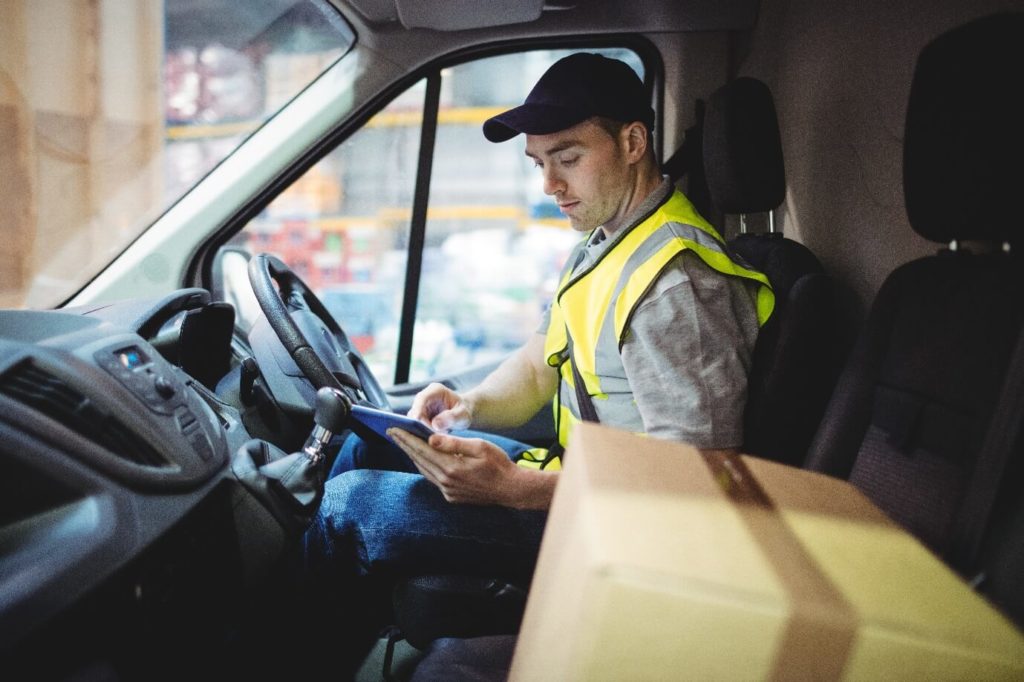Is Your Legacy Fax Equipment Hampering Your Haulage Business?
- Purchase orders
- Bills of lading
- Acknowledgements
- Shipping documents
- Invoices
- Proofs of delivery
- Confirmations

This traditional paper-based method of communication has become outdated in today’s fast paced market where the slowing down of business processes inevitably affect the bottom line.
Looking toward the long-term profitability and efficiency of your company, here are a few of the ways in which traditional faxing can hinder your company’s growth.
3 Ways Paper Faxing Can Hinder Your Transport Business’s Growth
1. Stopping Mid-Journey to Send Faxes
Small transportation companies often find that after successfully completing a delivery, they are unable to secure a shipment placement for the return leg of the journey. Rather than returning empty-handed, they will often waste valuable time attempting to secure cargo which needs to be transported to the same destination as their haulage vehicle.
Other companies may place available shipments on load boards, but will only accept bids from transport companies through fax messages. This often requires drivers to waste time searching for a working fax machine in order to send the necessary documentation. As the haulage and transport business is an industry with strict deadlines and time-constraints, this extra step is an added and unnecessary burden.
2. Missed Faxes Lead to Missed Business Opportunities
A reliance on traditional faxing services often leads to missed messages, especially whilst working on the road without immediate access to a fax machine. However, missed faxes can also occur a lot closer to home.
A haulage company’s office can be a hectic environment and, with the coordination of hundreds of shipments taking place, mistakes can, and do happen – especially when there’s a reliance on traditional equipment such as fax machines. It is easy to miss faxed requests, important documents and rush orders.
Unless a transportation company’s office is fully staffed around the clock and the team is constantly keeping watch over incoming faxes, it is likely that some business opportunities may be missed, and run the risk of prospective clients taking their business to the first rival haulage and transportation company that responds to them.
3. Wasted Investment in an Unused Fax Infrastructure
IT staff at larger transportation companies generally spend too much time handling employees’ fax complaints, performing fax-server maintenance, upgrades, or other infrastructure work. This added burden often keeps them from focusing on higher priority IT initiatives.
Typical infrastructures may take the form of multiple fax machines, multifunction printers (MFP) or fax servers at each company location. In addition, the haulage company will need to factor in dedicated phone lines. Plus, upgrades and renewals of your fax infrastructure can be a costly proposition. If this scenario sounds familiar, take a look at how much your company’s current fax infrastructure is costing your business.
A cost analysis of how much a business is paying to maintain a traditional fax presence juxtaposed against actual usage often results in uncovering inefficient spending and a very high cost-per-fax ratio. Certainly, one of the largest issues associated with maintaining a traditional faxing infrastructure is that it’s an inflexible commitment.
When a transportation company finds itself working to capacity on a single fax server, they may have to invest in a new server, which can be expensive. This is likely to be a wasteful investment, as it is unlikely that the new server is going to be used anywhere close to its maximum capacity. See related post “Is it Time to Retire your Fax Server”.
Furthermore, if a transport company is expanding its operations, and plans to open a smaller satellite office, installing a dedicated phone line for a handful of staff may be a considerable financial outlay for what is only a small business benefit. Unfortunately, fax servers and dedicated phone lines are all-or-nothing commitments; even if these purchases go largely unused, which is both inefficient and costly.
The Disadvantages of Paper Faxing in the Transportation Industry
The cost of maintaining fax machines, along with consistently replacing paper, ink and toner, is an obvious ongoing expense. Servicing, troubleshooting and upgrading communications hardware is a costly and inconvenient form of expenditure.
However, traditional faxing can also greatly impact productivity. The wasted time spent by staff waiting by a fax machine while documents are sent, received and confirmed, could be much better spent on important tasks.
The Benefits of Cloud Faxing for Transportation Companies

Despite all the negativity typically associated with faxing services, there remains an option that is highly suited to businesses operating in the transport industry – cloud faxing. An ideal solution for any company that needs to use fax in their day-to-day operations. And the company which has logged the most miles in the industry is eFax Corporate.
eFax Corporate’s mobile-friendly business solution allows companies to send, receive, edit, view and sign faxes and all via email. By moving your company’s faxing online, a transport firm can make use of the benefits of faxing from the road, with absolutely no printing necessary.
With eFax Corporate, there is no more waiting around the office for delivery confirmation notices and, most importantly, no delays which could result in failed transmissions and lost business.
The convenience of online faxing also means that employees will be able to reply to time-sensitive messages with ease, as they’ll always have access to their email whether they’re in or out of the office.
eFax’s corporate solutions for transportation companies mean that any haulage team can now send or receive faxes by email, with the ability to reply immediately, via email, from virtually anywhere in the world.
Feel free to get in touch with us to discuss your faxing needs and provide you with more information on costs based on your existing fax usage.
